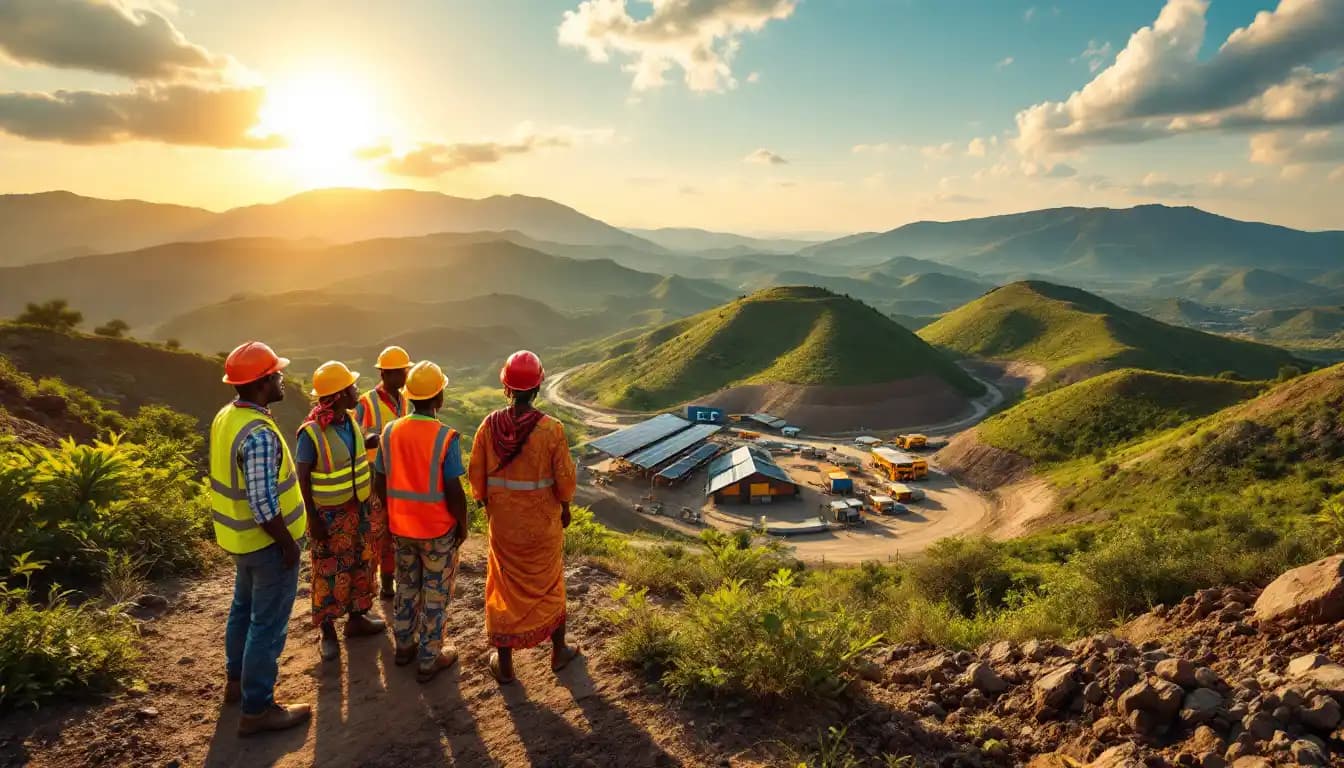We're loading the full news article for you. This includes the article content, images, author information, and related articles.
Greenland's Prime Minister Jens-Frederik Nielsen has called for increased European Union investment in the island's vast mineral resources, renewable energy, and infrastructure, a move that could open new avenues for Kenyan businesses and expertise in critical raw materials and green technologies.

Greenland, the world's largest island, is actively seeking foreign investment to develop its rich deposits of critical minerals, expand its renewable energy sector, and upgrade vital infrastructure. Prime Minister Jens-Frederik Nielsen, addressing the European Parliament on Wednesday, October 8, 2025, thanked the European Union (EU) for its long-standing partnership and urged the bloc to deepen its financial commitment. This call for investment presents potential opportunities for Kenyan enterprises and skilled professionals, particularly in the burgeoning critical raw materials and green energy sectors.
Nielsen highlighted that 2025 has been a significant year for Greenland, acknowledging the profound challenges posed by climate change. He emphasised the need for cooperation with like-minded countries and institutions that share Greenland's values. The Prime Minister's appeal for investment extends to mineral resources, renewable energy projects, airport development, and improved internet services.
Greenland, an autonomous territory within the Kingdom of Denmark, has a unique relationship with the EU. While not a full member, it holds Overseas Country and Territory (OCT) status, allowing for certain integrations with the EU's internal market through association agreements. This status facilitates cooperation, particularly in areas like fisheries, education, and training programmes. The EU has been a stable and reliable partner for Greenland for over 40 years, providing substantial support.
Greenland's foreign relations are managed in cooperation with the Danish government. However, the self-governing entity has the authority to open diplomatic offices in areas of full jurisdiction, such as foreign trade, industry, fisheries, education, science, and mining. The island's pursuit of economic diversification and eventual independence is a long-standing priority for its government, with a focus on building a sustainable economy.
Greenland's government has a Mineral Strategy for 2020–2024, which aims to diversify the economy, create jobs, and generate revenue. The strategy focuses on improving geological knowledge sharing, ensuring efficient and transparent administration, simplifying the transition from exploration to exploitation, and promoting sustainable development of the mineral resources industry.
The EU has demonstrated its commitment to strengthening ties with Greenland, with the European Commission planning to more than double financial support. This includes a significant allocation for education and skills development, and a 'Green Growth' programme focusing on renewable energy, critical raw materials, and biodiversity conservation.
Prime Minister Nielsen underscored Greenland's readiness to accelerate cooperation with the EU, particularly concerning critical minerals essential for various high-tech applications. He noted that Greenland possesses 24 of the 34 raw materials identified by the EU as critical, and its mining sector is prepared to play a crucial role in securing supplies for Europe and beyond.
The EU's recently established office in Nuuk, Greenland's capital, signifies a concrete European presence in the Arctic, a region of increasing geostrategic importance. This office aims to foster local perspectives and enhance the visibility of EU initiatives.
Greenland faces significant challenges from climate change, with its ice sheet cracking more rapidly than ever before. The melting ice contributes to global sea-level rise, threatening coastal communities worldwide. The Arctic region is experiencing rising temperatures at twice the global average, leading to billions of tons of ice loss annually.
While Greenland seeks Western investment, particularly from the EU and the United States, there is a cautionary note that a lack of engagement could lead the Arctic territory to seek partnerships with countries like China. This highlights the geopolitical competition for access to Greenland's strategic resources.
Despite the significant potential, the economic viability of critical raw material mining in Greenland, at least in the short to medium term, remains uncertain due to massive investment requirements, lack of existing infrastructure, and a limited local workforce. There are also ongoing discussions regarding the balance between economic development and environmental sustainability in mining operations.
The redevelopment of Nuuk and Ilulissat airports was scheduled for completion by the end of 2023, with Nuuk International Airport opening in November 2024. The two additional airports in Ilulissat and Qaqortoq are expected to be operational by 2026.
Observers will be keenly watching the progress of EU investments in Greenland's critical raw materials and green energy sectors. The ongoing negotiations for a memorandum of understanding on critical raw materials between the EU and Greenland will be a key indicator of future cooperation. Furthermore, the development of Greenland's infrastructure, particularly in telecommunications and airports, will be crucial for unlocking its economic potential. The interplay of geopolitical interests from the EU, the United States, and other global powers in the Arctic region will also remain a significant area of focus.
Keep the conversation in one place—threads here stay linked to the story and in the forums.
Sign in to start a discussion
Start a conversation about this story and keep it linked here.
Other hot threads
E-sports and Gaming Community in Kenya
Active 9 months ago
The Role of Technology in Modern Agriculture (AgriTech)
Active 9 months ago
Popular Recreational Activities Across Counties
Active 9 months ago
Investing in Youth Sports Development Programs
Active 9 months ago